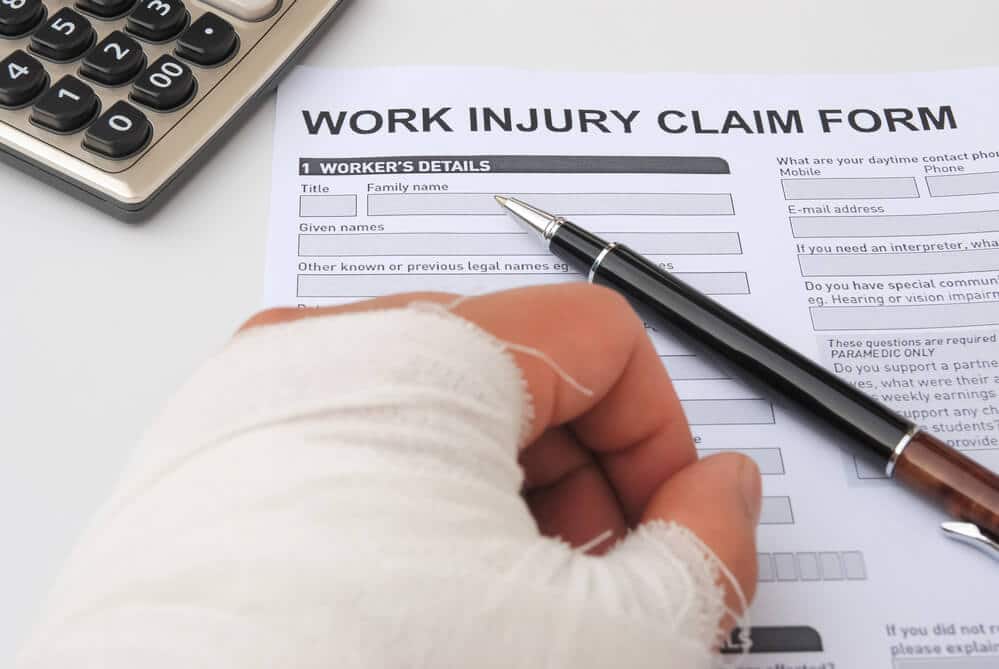

If you’re reading this, there is a good chance that you have now gone through the whole workers’ comp process. You got injured at work, which I’m sure was a major pain (pun intended). After that, you filed a workers’ compensation claim. Then you finally received a payout for your troubles. Or, it may be that you’re about to go through all this. Either way, you might be wondering how taxes get involved. Let’s walk through it with the help of CA Workers’ Compensation Attorney, a Los Angeles workers’ comp attorney.
How Does Workers’ Comp…Work?
If you have already done all this, you know what workers’ compensation is. It’s an insurance policy held by employers in case someone (like you) gets injured or ill on (or as a result of) the job.
This video on YouTube is very thorough in explaining what it is and how it all works. While I admit it may not be the most exciting video in the world, it is very detailed and altogether helpful.
Of course, you must document the injury as soon as possible. You have to file the claims with the proper authorities and organizations. You and your employer must keep current with the claims adjuster(s). Last, everyone must follow due diligence.
If all goes according to plan, you should receive a payment from your employer’s insurance. The employer itself does not pay you; the insurance company does. This sum includes a lot of different compensations. It might attempt to remunerate you for lost wages, medical bills, and a whole host of other costs as well.
How Does Tax Work on Compensation Payouts?
As I mentioned, you might get a payout in regards to any number of various sources or causes, from the illness or injury itself to the often endless doctor’s bills. And don’t forget about missed paychecks. All this has the potential to get included in your sum. That said, you might also have to pay some people or organizations once the payout gets delivered.
As Nolo points out in a very helpful article, if you hired an attorney, you will need to give them their cut. Likewise, if you happen to have outstanding hospital bills, those also need to get settled.
In a similar fashion to medical bills, Medicaid or Medicare may set aside money for your expenses. Nolo writes that they don’t pay for hospital bills covered by workers’ comp. That said, they can front the money for you if necessary, while your claim gets adjusted. If this is your situation, you’ll also need to pay them back.
Other final deduction instances are then pointed out by Nolo. Workers’ comp settlements might also get garnished for two important things. One is permanent disability advances, and the other is unpaid child support. Both can mean significant cuts to your workers’ compensation payout. Keep these in mind as we move ahead.
So, finally, on to the question of taxes on workers’ comp settlements. Nolo states, “Generally, you don’t have to pay state or federal taxes on your workers’ comp…settlement.” This is great news!
But, in the case of workers’ compensation, there are two exceptions you do need to be aware of. There is a chance that neither will apply to you, but it is far better to be safe than sorry.
As Nolo writes, “One exception…applies if you’re also receiving benefits through…SSDI.” This stands for Social Security Disability Insurance. Together, your payouts from both SSDI and workers’ comp might result in an “offset”.
This means that your SSDI benefits may get lowered. In other words, the workers’ comp settlement was so high that the federal government will pay you less. Not a tax per se, but it functions in a similar way.
Second, and on the same level of importance, there exists an exemption about tax credits. Nolo says, “The IRS may consider the amount you receive as income” to decide credit eligibility.
So, in short, the answer is negative. It is very unlikely that you would ever have to pay taxes as such on your workers’ comp settlement. That said, there are likely some payments you will need to make, such as lawyers or doctors, or even child support.
All this said, you will likely keep a large chunk of your workers’ compensation payout sum. This is, of course, quite good news. If you have any specific questions about the matter, make sure you ask your attorney. You can also ask your employer’s insurance.
Again, take a look at the video that explains in detail what workers’ compensation is and how it functions. That alone might answer a good number of your questions.
If you want to dig a bit deeper for yourself, check out this book. It’s entitled The Insurance Professional’s Practical Guide to Workers’ Compensation. While it is not written for the average worker, it might provide you with an insider’s look at the process. That alone could be worth the price of admission.
